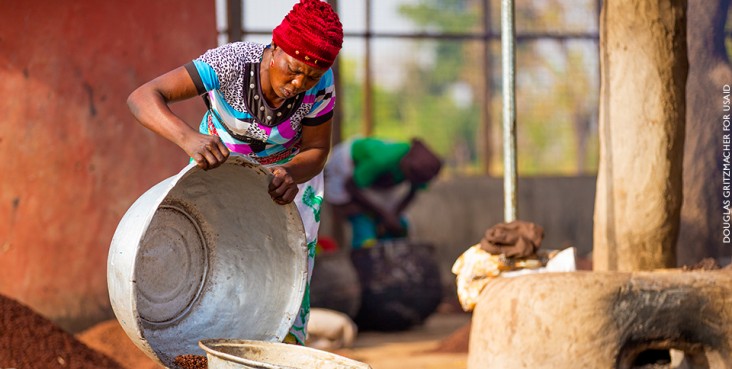Speeches Shim
As Deputy Secretary Sullivan said, the United States is committed to helping expand economic growth and opportunity across Africa. Today, about 60% of Africa's 1.2 billion people are under 25. A decade from now, there will be around 320 million Africans between the ages of 15 and 24. A whole generation of young men and women with big dreams, eager for the opportunity to make their own way. The challenge of our generation is to ensure that the opportunities are there.
So I thought I would take a few moments to update you on some of the highlights from USAID meetings this week. As you know, at USAID we believe the purpose of foreign assistance is to end the need for its existence. And we believe that our job is to work with countries on their journey to self-reliance. There is plenty of work to do all around as we support the world’s most vulnerable populations that are affected by humanitarian crises, promote human rights, democracy, citizen-responsive governance, and improve development outcomes in the areas of economic growth, education, and environment, and health worldwide.
We've just had a wonderful conversation; Ambassador Vecchio, myself, and the rest of the delegation. I've been impressed with their leadership since we first met back in January. In the meeting today, I was able to give them the great news that I'm announcing $52 million in new funding from USAID to support the interim government and the people of Venezuela as they seek to restore citizen responsive, democratic governance and repair the provision of health services in their country. USAID, and the Trump Administration more largely, fully support the interim government of Juan Guaidó to democratically elected National Assembly and the Venezuelan people as they work to end the illegitimate Maduro regime. The people of Venezuela have suffered enough in these long years and it is time for the country to enjoy peace and prosperity under a democratically elected government.
For many years, development agencies acted as though they were the only legitimate drivers of progress. And when you think about it, it made some sense. Our partner countries were still emerging from communism and colonialism and they had tremendous needs. And so we stepped forward with material assistance: food, medicine, books, buildings. Or we lent people, doctors, nurses, teachers, engineers. And we did it, in part, because if we didn't, who would?
Today in New York, the United States announced more than $127 million in additional humanitarian assistance for Rohingya refugees and host communities in Bangladesh and internally displaced Rohingya and members of other affected communities in Burma. This funding will help address the emergency needs of some of the more than 900,000 refugees in Bangladesh, many of whom are Rohingya women and children from Rakhine State, Burma, as well as the related needs of Bangladeshi host communities. This funding will also provide life-saving assistance to internally displaced persons, including Rohingya, and members of other affected communities in Burma, including those affected by the fighting between the Burmese military and the Arakan Army.


Comment
Make a general inquiry or suggest an improvement.